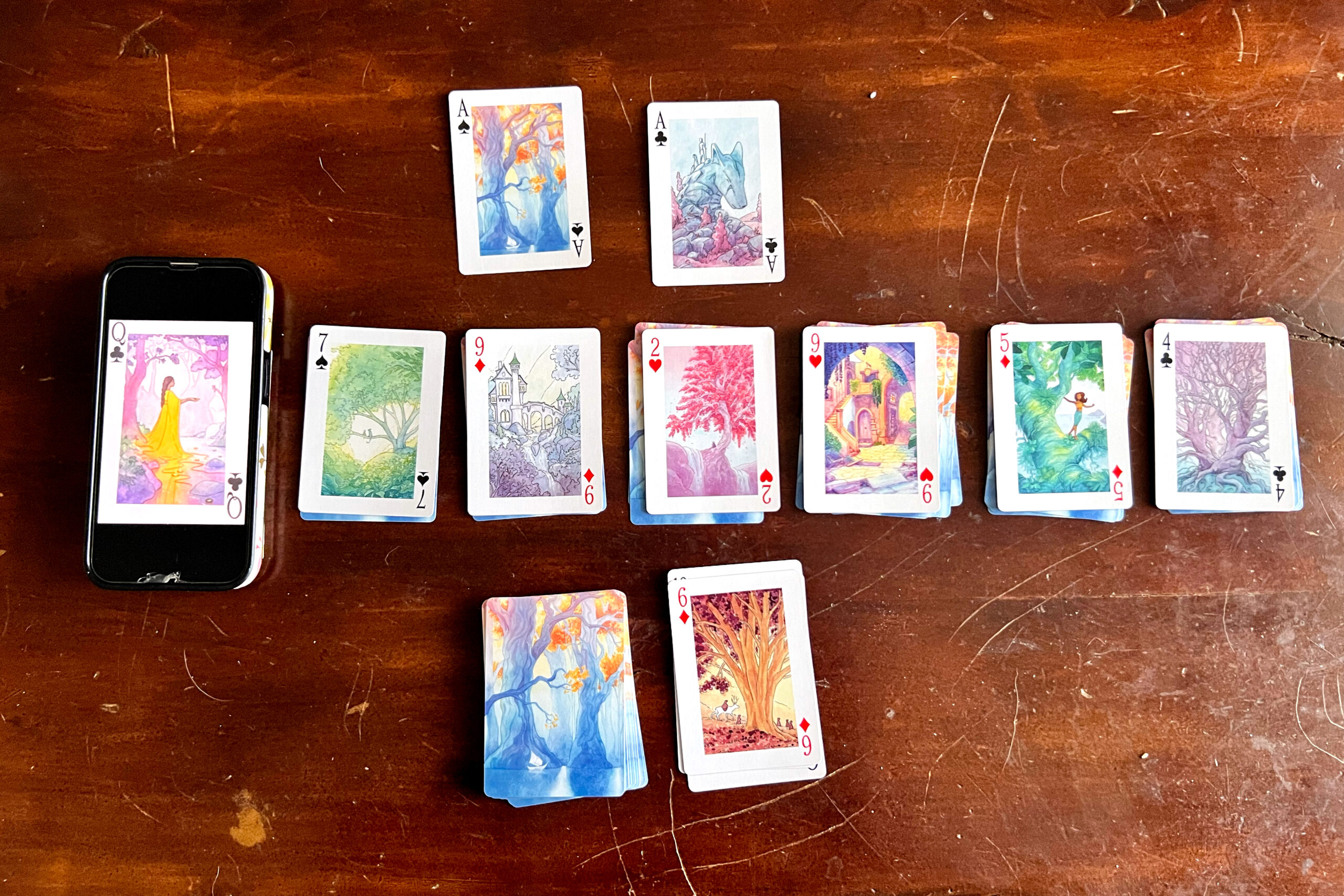
You went for a walk today, early, the sun still climbing over the horizon, making orange creamsicle swirls in the clouds to the east. It’s the first time in weeks — months, really. But who can blame you? After the holidays, and getting sick, and hurting your back, you needed the rest. You took it.
But this isn’t really about how you finally got back to walking in the mornings. This is about how, when you went out this morning, you didn’t stick your AirPods in your ears.
It’s kind of a given, isn’t it? That having something to listen to is the magic feather that will propel you out of your warm bed to plod for ten or maybe fifteen minutes around your boring suburban block before returning home to start the day. Music, usually; something blandly bright but not too energetic. Sometimes a podcast. Or affirmations.
But because you’ve been on a journey that has nothing to do with how many steps you take every day, it occurred to you last night that you don’t go for a walk because you want to listen to music. You could listen to the music (or the podcast or the affirmations) any time you want, walking or not. The music isn’t a lure, it’s just a filler.
Like so many things that have come to fill your time in the past couple decades, that morning music is just noise that you’ve tricked yourself into thinking you enjoy, just because it’s available.
Just because it’s available.
This is the journey that you’ve been on for a while. Since May, at least, when you took a “break” from social media, deleted the apps from your phone (Facebook, Instagram — you gave up on Twitter long ago and never took the TikTok plunge) so that you could only look at them when you’re at a computer.
It was only going to be a few weeks, but it didn’t take long to recognize that you really weren’t missing the constant stream of thoughts and images and updates and news and ads. The constant stream of distractions. So many distractions that you could barely remember what they were distracting you from.
It’s not that the content wasn’t good; most of it was — a carefully curated stream of arts, crafts, humor, poetry, philosophy, sprinkled with just enough personal news that you felt that you were really staying in touch with friends and family. It’s just that there was so much of it; so many people hustling for your attention that there was no way to keep up with it all. But it wasn’t a sense of obligation or even FOMO that kept you tuning in to those streams. It was simply that it was right there on your phone, a phone that is never more than a few inches from your fingertips.
It was available.
You’re not the only person thinking about how all these readily available distractions are affecting the way you move through the world, the way you think, the way you relate to other people. You don’t want anyone to think that you are some kind of hero for taking steps to limit how much time you spend consuming digital content — you have spent way too much time watching YouTube Shorts or subscribing to Substack newsletters to pretend that you have a low-screen existence.
But you’re trying. You want to find out what you might be capable of when you’re not distracted all the time. What you might see when you lift your gaze up from your phone. What you might hear when you take the AirPods out and listen to world.
Detachment is a term you’ve learned from Buddhist philosophy; you’re not a student of it — it’s just one of those things that is available now. But the word resonates with you more and more as you get older. It sounds morbid, but the thought of living out your final years burdened with so much stuff — physical, emotional, digital — just sounds exhausting. So you’ve been doing your best to pare down the load you carry. You’re not a minimalist, but you’re trying to surround yourself with things that really matter to you, things that have an immediate function, things that you won’t end up storing in the garage and left for your kids to deal with when you’re gone.
So you were already in the right mindset when it came to getting rid of things. Your “short break” had already gone on for more than six months when corporate shenanigans convinced you that Metaverse doesn’t deserve your presence and it was time to delete your accounts.
It was nearly that easy. A few days to warn contacts and gather other means the keep in touch. Subscribing to the newsletters of favorite artists and artisans whose work you want to keep supporting. Downloading fifteen years of posts and photos and messages; saving it to a hard drive in case you ever want to look back at that capsule of your history. It was less complicated than you thought it would be, and when it was time to push the last button, you did so without a twinge of regret.
At least you don’t have to haul this box of old belongings to Goodwill.
You know you haven’t bee miraculously transformed by this act. (Deleting stuff is actually pretty easy.) What really matters is what you do next. You’re not a Buddhist; you know that if you detach from one thing, you’re probably just going to attach to something else instead. The trick will be making sure you pick something that really means something to you, something that leads you forward on your journey through life, not whatever happens to be available next.
Here’s what you know you want to do: Connect with nature more than the internet. Make things with your hands. Write things on paper, with colorful inks and a fancy pen. Use real playing cards, with beautiful artwork on them, instead of generic solitaire apps. Talk to people about interesting and random and important things. Figure out what excites you in your heart and pursue it relentlessly. Find time to do nothing.
You need time to do nothing. So take it.
![]()
Some resources and inspiration for breaking social media attachments and starting a digital detox:
- Stolen Focus: Why You Can’t Pay Attention — And How to Think Deeply Again, by Johann Hari
- Social Media Escape Club
- Habits From My Low Screen Life
Check out the artwork of Naomi VanDoren and get your own deck of the lovely cards featured above.
